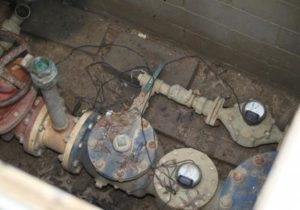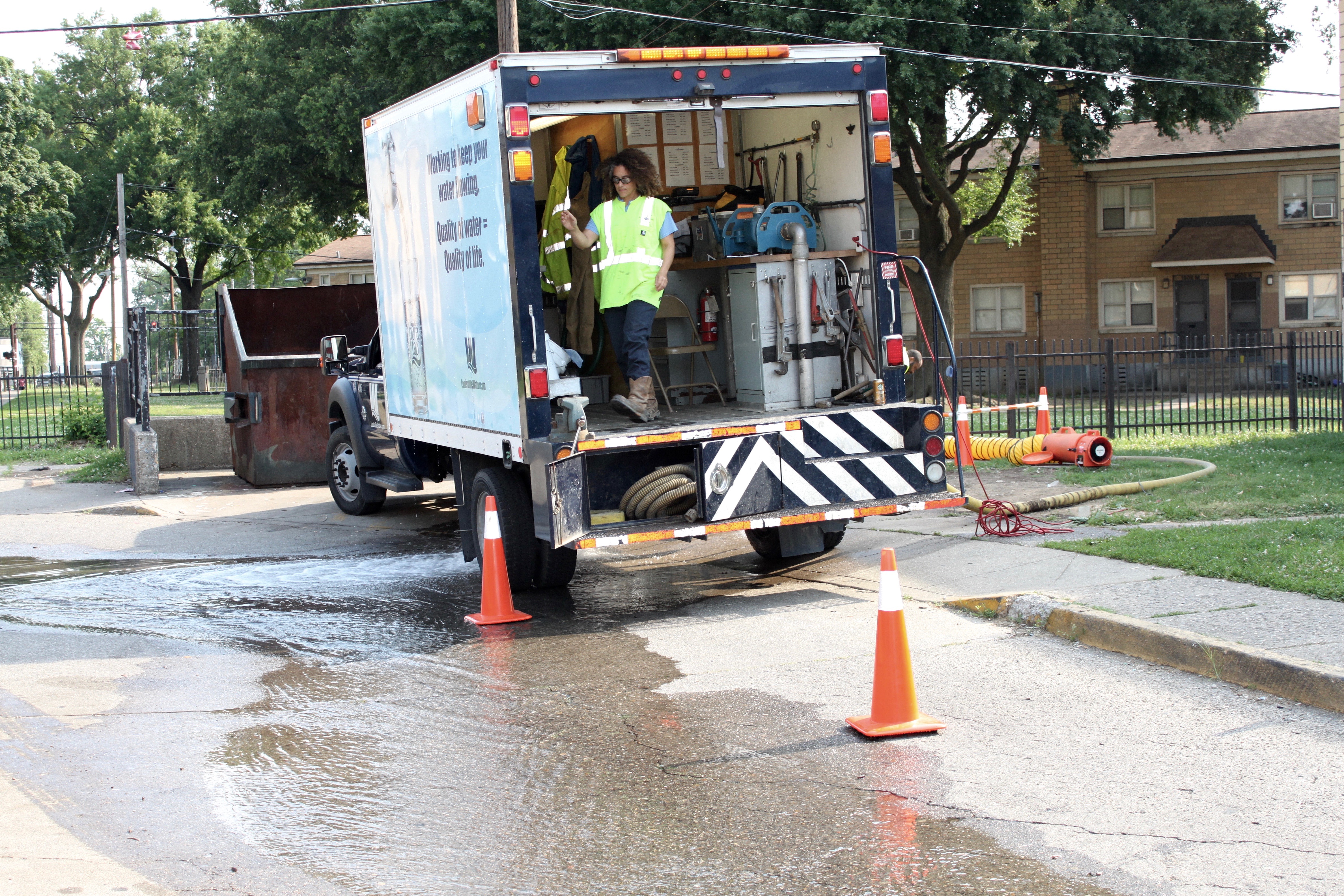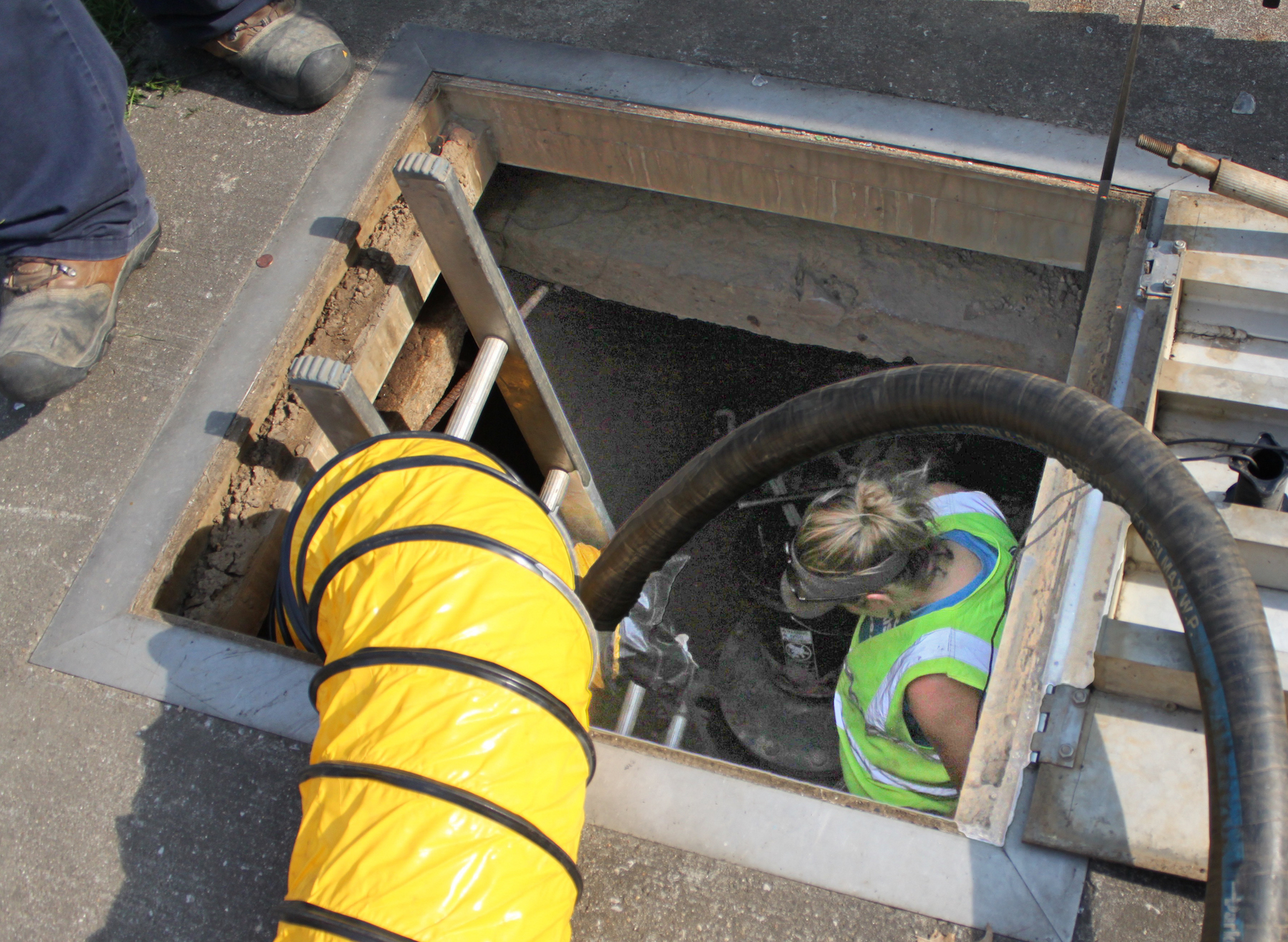 There’s no other vehicle in Louisville — maybe not even in the whole state — like Louisville Water’s large meter testing truck.
There’s no other vehicle in Louisville — maybe not even in the whole state — like Louisville Water’s large meter testing truck.
“Other water companies are amazed by it,” said Katie Cooper, a Metering Plumber Leader Assistant.
She’s part of a crew that uses the truck to test the accuracy of water meters that are three inches or larger. Nationally, most residential water meters are 5/8 to 3/4 inches. Customers who use large meters include hospitals, schools, apartment buildings, hotels, chemical plants and other industrial facilities.
Louisville Water has about 1,500 of these customers. Most of their meters are tested on a three-year rotation, but the top 100 customers are tested at least once a year, and the top 50 customers are tested twice a year. The testing program benefits customers because it makes sure they aren’t paying too much and because it can indicate if there’s a leak in their pipes or valves.
The crew recently tested a large meter at Louisville Metro Housing Authority apartment buildings on 13th Street, which provided an overview of how the testing process works.
First they located and opened the meter vault. It was larger than a typical vault — so large that Cooper needed a ladder to climb down into it.
Before she went in, however, she lowered an air monitor device to make sure there was enough oxygen and that there weren’t any dangerous gases, such as carbon monoxide.
The air tested okay, so Cooper climbed down into the vault and reported that there were about 50 cockroaches clustered in a corner. She and Plumber Leader Angie Schaftlein said they’ve also encountered black widow spiders and, once, a copperhead snake in a vault.
Before the crew began testing, they hooked up bypass hoses so the customers wouldn’t lose water during the process.
The tests involved running water through equipment inside the truck. Schaftlein read meters on the testing equipment and performed various calculations to see if flow rates were within standard parameters. In general, the testing involved comparing readings in the truck with readings in the vault to make sure the vault meters were working correctly.
Normally, Schaftlein would have to leave the truck to get several sets of readings from Cooper in the vault so Cooper wouldn’t have to keep climbing in and out of it. But on this particular day, the crew was working with a trainee — Apprentice Laborer Tony Rice — who relayed the numbers from Cooper to Schaftlein.
The crew ultimately determined that the apartment complex meters were working correctly. When they find one that isn’t, they may be able to repair it themselves, but if the equipment needs major work or if they don’t have parts for the brand of meter they’re testing, they report the problem to Louisville Water’s large meter maintenance crew to make the repair.
After water goes through the equipment inside the testing truck, it’s released near a drain in the street, which limits the crew’s ability to work in cold weather because the water could freeze on the pavement. Typically, the crew tests meters 10 months out of the year. They usually work at three to four sites a day, and each test takes about an hour and a half.
At the vault on 13th Street, Schaftlein and Cooper’s work was briefly interrupted when a woman walking by the truck told them about a problem with her Louisville Water account. The crew said this happens quite often, and they usually try to help these customers or at least refer them to other Louisville Water staff members who can.
“So we do customer service too,” Schaftlein noted, and she added that she was happy to take on this additional role because “I like helping people.”



